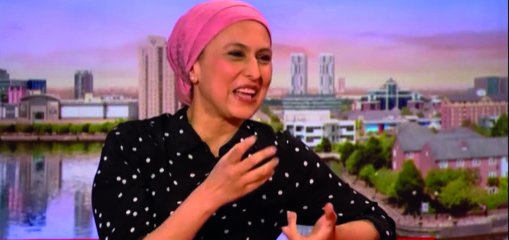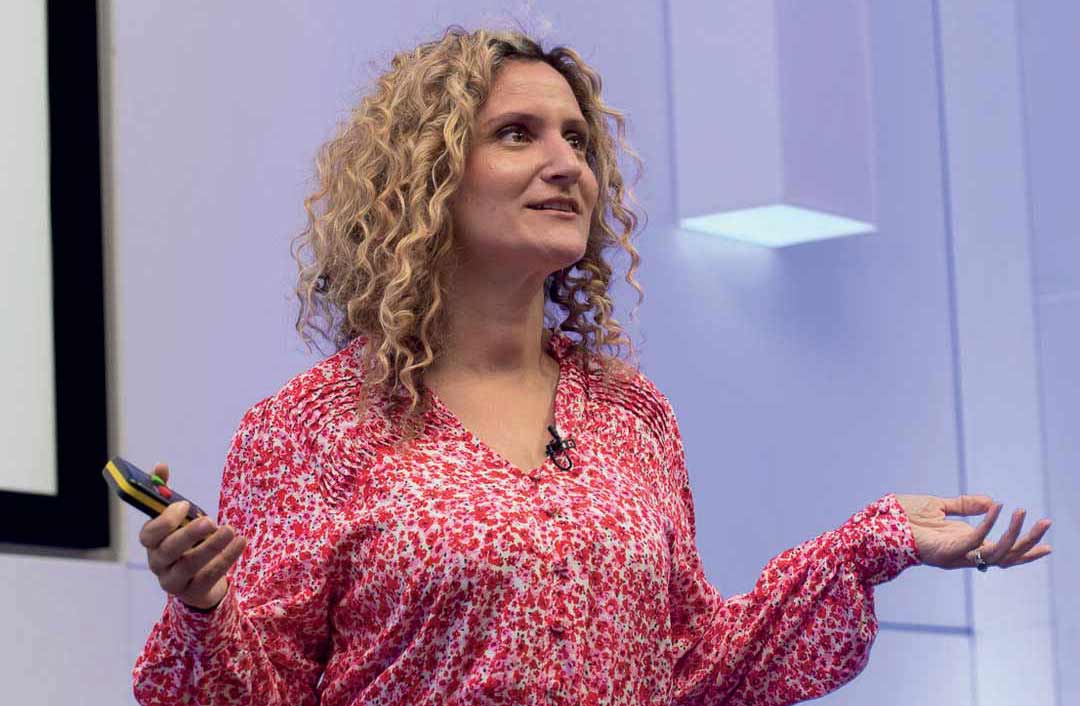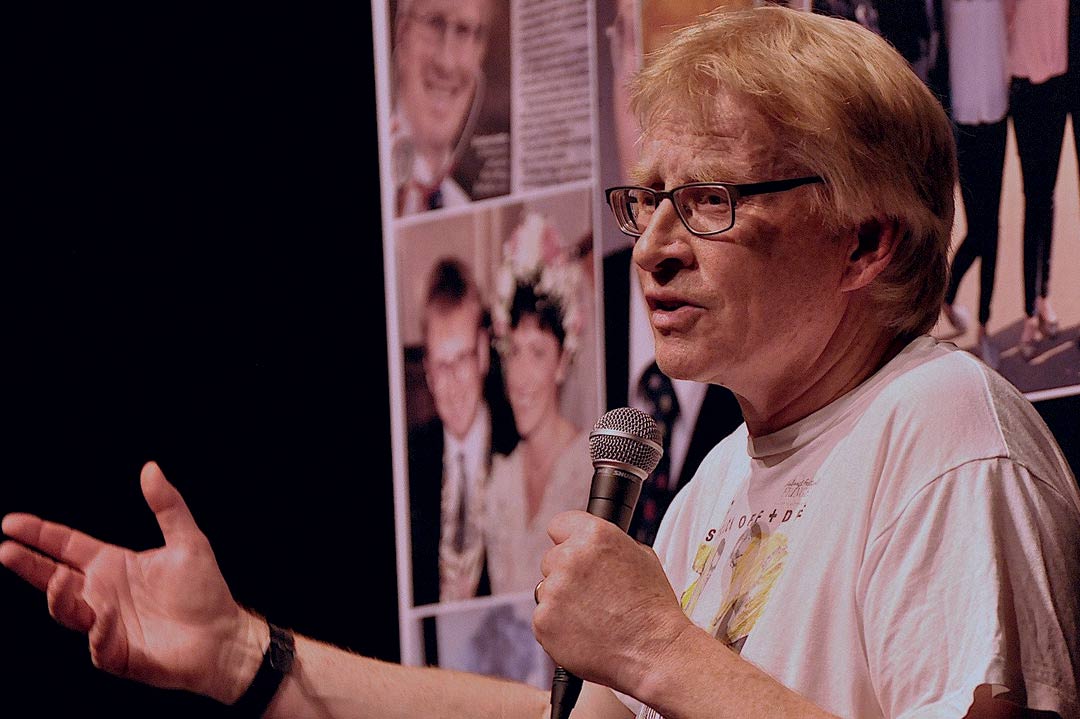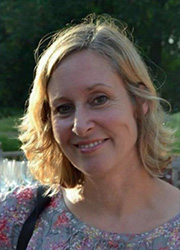
Three prominent ‘media GPs’ discuss the upsides and downsides of being in the public eye.
GPs in the media - on TV and radio, in newspapers and magazines, on social channels - play an important role in communicating important health advice and public health messages to millions of people, as well as advocating for the profession.
“ You can talk about health whether you’re a doctor or not, so it’s important to have real doctors giving information in the media,” says Ellie Cannon, a GP in Camden, North London who has been the Mail on Sunday’s resident GP for the last 15 years as well as making regular appearances on BBC, ITV and Sky programmes.
“ It’s often just normal GP stuff,” she says, “ similar to what I get in real life clinics.”

Likewise, Fari Ahmad, a GP in Wilmslow, Cheshire and one of BBC Breakfast’s regular GP voices for the last five years, says, “you’re a trained clinician, that holds a lot of weight, and that’s why they have you on. The presenters probably know all the answers you’re giving them, but they want you to be the person who says it.”
“It’s about handling whatever questions are thrown at you in a measured, sensible way, which as GPs we tend to do anyway,” says Fari.
“Often headlines are very black and white, so being given some time to discuss the context is useful, for example, explaining why patients can’t get an appointment quickly because there aren’t enough GPs but we’re working harder than ever. The skill is having very clear ways of putting a message across, you need to use simple language that people get.”
Fari was first approached by a producer looking for a Muslim woman to give medical advice. “I was initially reluctant but they said it was good to have different types of people represented, so I agreed to do it,” she explains.
It's about handling whatever questions are thrown at you in a measured, sensible way, which as GPs we tend to do anyway.
Ellie was also approached directly to provide a quote for a newspaper and things grew from there – while Phil Hammond’s media career came out of comedy.
“Edinburgh Fringe was how it all started. I was in a junior doctor double act as a GP trainee. We thought, rather naively, that we could get some sort of social and political change through stand-up comedy. We collected a selection of the most outrageous junior doctor stories of unsupervised training, making mistakes due to being tired, and performed this [show] in Edinburgh. It got picked up by the BBC and got record numbers of complaints to the broadcasting standards authority, but back in the day, Radio 4 rather liked that and they gave us a series.”
He then met Ian Hislop, editor of Private Eye, at a BBC Christmas party and asked him for a column. He’s written for the magazine under the pseudonym M.D. for more than 30 years, although he’s publicly open about his alter-ego.
Recently retired, Phil practised as a GP for 20 years before switching to sexual health and latterly specialising in paediatric chronic fatigue. “In my heart, I’m still a GP, and I’ve remained a member of the RCGP, but I found the 10 minutes for patients really hard,” he explains.
As well as Private Eye, Phil has written books, fronted TV series and hosted a show on BBC Radio Bristol. He lists unsafe NHS staffing, lack of data transparency, and not listening to whistleblowers as the three key issues he has campaigned on during his career.
He still doesn’t think whistle-blowers can genuinely speak freely. “I’ve broken some big stories, and then protected the whistle-blower, but we’re still a long way from people being able to speak up safely so in that sense I’ve failed,” he says.
He thinks it’s important that medical voices continue to enter social and political debate because ‘politics is about the compassionate and responsible use of power…it’s absolutely at the heart of medicine, particularly a service that’s tax-funded’. He also sees social media as an important medium, although ‘you have to be careful what you tweet.’
Ellie recognises her prominence in the media and on social media allows her the opportunity to ‘shout about the things I like to shout about, such as women’s health and highlighting the link between rising cost of living and health.’
She has also written and published two books: the first for new mothers; and the second on mental health in the workplace. “It’s lovely to publish books,” she says, citing the control she has over them, “I chose the topic, I wrote them myself, and it’s really nice to see your name in print in a bookshop.”
During the Covid-19 pandemic she was the first doctor to write about making her own face mask; and she used her platforms to encourage people to get involved in vaccine trials.

You can talk about health whether you're a doctor or not, so it's important to have real doctors giving information in the media.
Whilst all three GPs advocate for doctors, Ellie and Phil have also found themselves speaking out against the profession.
“One of the first stories I broke in Private Eye was the Bristol heart scandal,” recalls Phil, referring to high numbers of babies dying after cardiac surgery at the Bristol Royal Infirmary in the 1990s. It led to what was, at the time, the biggest public health inquiry in British history and called out staff shortages, poor leadership, unsafe working practices and a culture of secrecy around doctors’ performance.
“That’s when the whole thing changed from defending doctors to protecting patients,” he says – something that didn’t make him ‘universally popular’.
Ellie too received criticism from GPs for using her Mail on Sunday column to call out, and call for, examples of GPs not seeing patients face to face during the pandemic when restrictions were being lifted – but she stands by this.
“If you stay true to yourself, you don’t have anything to be afraid of. I would never welcome attacks on the profession because that is an attack on me at the end of the day. I’m a patient and a carer, as well as a GP, and I was fully aware that the practice where I’m registered was not seeing patients face to face. The letters we got [at the MoS] and stories I heard from friends and family were real.
“It’s important to highlight the problems. And of course, it wasn’t just GP-driven, it was pandemic-driven and resource-driven, and it’s shown that general practice needs big investment to keep going.”
Ellie says she’s always surprised by how confrontational and angry people can get about certain topics, particularly on social media. “You have to develop a tough skin,” she says.
Fari recalls a time when someone called her practice to complain about something she had said on TV, and another where some comments on a particularly emotive issue led to a backlash on Twitter. “Luckily I’m not a proficient tweeter, so didn’t realise until a week later,” she jokes.
She’s also taken part in debates with those who have completely different viewpoints. “I suppose it’s great for viewing figures. You have to consider your demeanour, if you’re aggressive and defensive, you will lose the audience. You’ve got to come across as human and talk from a place people can understand.”
“I do enjoy it,” says Fari, “it can be daunting when you think it’s live TV and millions of people are watching, but the trick is to forget the camera and the studio and just have a conversation on the sofa.”

When I look back on my career, I'm sure I did more good making people laugh than feeding them statins.
It’s gone full circle for Phil, who has just completed a stint at the Edinburgh Fringe where it started for him 30 years ago. He did two shows a night for two weeks, one on each of his current books: the first a collection of his Private Eye M.D. columns about the pandemic; the second on how patient expectations of the NHS have changed over recent years.
“It went well,” Phil says with relief, “it was risky, I remember when I was young, I’d go there and see these old farts and now I’m one of the old farts, but it was a joyous and liberating as ever. You have complete freedom to say what you want – well nearly, one comedian got cancelled this year – and your only accountability is to your audience. When I look back on my career, I’m sure I did more good making people laugh than feeding them statins.”
Thank you for your feedback. Your response will help improve this page.
